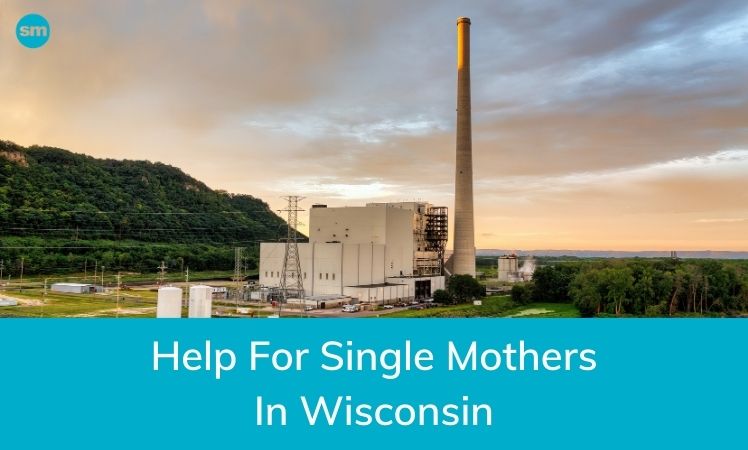Last Updated on January 31, 2024 by Lori Pace
Families and single mothers in Wisconsin are included in federal and state-funded financial aid programs that complement the efforts of low-income families. To make things a little easier, particularly for single mothers, Wisconsin has implemented programs to help ease their financial burden. This program includes cash benefits, child health care, and other medical benefits.
Earned Income Tax Credit (EITC)
Wisconsin is one of a few states that offer a state credit supplementary facility. This program targets mainly working families who receive the federal Earned Income Tax Credit. The Wisconsin Earned income credit grants are refundable, and the percentage can be calculated by using the federal credit. However, it depends on how many children the family had at the time of paying taxes.
Wisconsin Works (W-2)
This program is one of those Wisconsin time-limited but work-based programs that is made available to those low-income pregnant women and parents who meet the requirement. These (W-2) programs are based solely on self-sufficiency. Participants of this program can receive a monthly payment of up to $1653, especially if they are willing to participate in the employment and job training programs.
You must first be a Wisconsin resident, pregnant, or responsible for a child under the age of 19. Parents with children are also eligible, as long as their family income is less than 115% of the federal poverty level. If you are a mother who does not live with her child but is a single parent, the state offers a service for non-custodial parents to help them afford child support.
Food Share Wisconsin
The state of Wisconsin offers a monthly food benefit for families that fall under this category. This Wisconsin program is there to help families, especially single mothers who have a sufficient income pay for their needs. This program provides eligible families with $340 in cash monthly. The program was originally there to provide food assistance to low-income families. This has remained its primary focus.
The program is also for the elderly, disabled, and those with a low income. All your Food Share benefits are automatically deposited in your Wisconsin QUEST account once you have qualified for the program. The benefits are meant to continue on the same date of the month that you were qualified.
Wisconsin Shares
The Wisconsin Child Care Subsidy Program aims to assist low-income families in affording childcare. After a family qualifies for the program, they can receive subsidies for childcare services. This program is for children under 13 or up to this age with special needs. If you qualify, this program will cover a portion of your child’s care costs. The children’s parents are the ones who pay for the balance.
Women, Infants, and Children (WIC)
The program provides free food, nutrition, education, referrals to health care, and referrals for families who qualify. This program is for low-income pregnant and nursing women, infants up to age 8, postpartum mothers, and children under 8 years of age. The WIC program is open to residents of the state who have incomes that do not exceed 185% FPL. Applicants must also be medically deemed as being at nutritional risk.
BadgerCare Plus
This program provides families in Wisconsin with free or reduced healthcare costs for their children. It also covers pregnant women who cannot afford medical expenses. It is designed to help people who are currently uninsured. Wisconsin Badgercare provides assistance to adults with incomes below 95% FPL or $19,000 per family of three, pregnant women, and children younger than 19 years old.
Wisconsin Unemployment Insurance
Unemployment benefits are temporary financial aid provided to unemployed workers who have no fault. The purpose of the program is to provide financial assistance to workers who are eligible and their families in times of unemployment.
Wisconsin’s maximum weekly unemployment benefit is $670 until September 6, 2021. The maximum benefit will be $370 per week after that. You must register at the Job Center of Wisconsin each week you collect benefits and actively search for suitable employment.
Wisconsin Tuition Grant
Wisconsin Tuition Grants (WTG) provide grant assistance of up to $3150 to Wisconsin residents who are undergraduate students attending a Wisconsin non-profit university or college. You must submit the FAFSA every year by April 1. The selection is based on financial need, with a maximum of 10 semesters.
Wisconsin Talent Incentive Program (TIP) Grant
The Talent Incentive Program Grant (TIP) provides financial assistance to Wisconsin residents who are financially in need and have educational disadvantages. The initial awards for first-time freshmen students range between $600 and $1,800 annually. They are given on the basis of first come first serve until funds run out.
Bottom Line About Help For Single Mothers In Wisconsin
There is a big variety to choose from when it comes to asking for assistance. The federal government and nonprofits work hard to support the community they are in, the best that they can. To learn more about other assistance offered to help single mothers in the state of Wisconsin, visit these articles:

